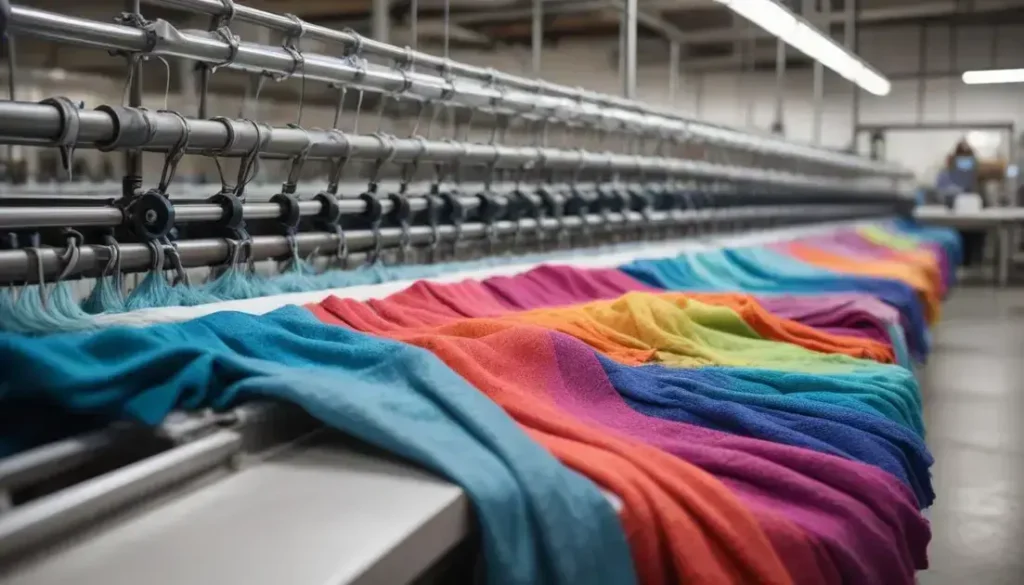Sustainability in fashion is advancing as UK firms adopt circular economy practices, focusing on recycling materials and reducing waste, thereby meeting consumer demand for eco-friendly products.
Sustainability in the fashion industry is evolving, and Mango is at the forefront by introducing Circulose® fabrics. But what does this mean for UK firms?
Mango’s partnership with Circulose®: A game changer for sustainability
Mango’s partnership with Circulose® represents a significant milestone in the pursuit of sustainability within the fashion industry. This innovation transforms textile waste into high-quality fabrics, supporting a circular economy. By utilising discarded cotton textiles, Mango not only reduces waste but also decreases its reliance on virgin materials.
Through this collaboration, Mango is making strides in creating a more sustainable supply chain. The process involves collecting fabric waste, which is then processed into Circulose®, fostering a responsible production model. This not only enhances the brand’s commitment to environmental stewardship but also sets an example for other companies in the industry.
With sustainability becoming a pivotal concern for consumers, Mango’s initiative aligns perfectly with the growing demand for environmentally friendly products. By adopting Circulose®, the brand showcases its dedication to innovative solutions and transparency in sourcing materials. This partnership is expected to resonate strongly with eco-conscious shoppers, potentially driving up demand and establishing long-term customer loyalty.
Furthermore, as the global fashion industry grapples with the challenge of waste reduction, partnerships like Mango’s with Circulose® could serve as an inspiration for other brands looking to implement similar eco-friendly practices. In doing so, the industry can move towards a more sustainable future.
UK fashion firms adapting to circular economy practices
The shift towards a circular economy is gaining momentum among UK fashion firms, prompting them to rethink traditional manufacturing processes. As sustainability becomes paramount, brands are increasingly focusing on reducing waste and maximising resource efficiency. This shift involves integrating systems that allow for the reuse and recycling of materials, enabling a more responsible approach to fashion production.
Many leading retailers are embracing innovative practices, such as using recycled materials in their collections and implementing take-back schemes. These initiatives not only lower environmental impact but also appeal to a growing segment of conscious consumers who prioritise sustainability in their purchasing decisions.
As part of this transformation, UK fashion brands are also exploring collaborations with technology firms to enhance their processes. For instance, adopting digital tools helps track supply chains and manages waste more effectively. This integration of technology fosters transparency, allowing consumers to understand the lifecycle of their garments.
Furthermore, education plays a crucial role in this evolution. Many companies are investing in workforce training programs to equip employees with the skills necessary for sustainable practices. By committing to circularity, UK fashion firms are not only contributing to environmental goals but are also positioning themselves as leaders in the future of sustainable fashion.
In Conclusion: The Future of Sustainable Fashion
The push towards a circular economy is reshaping the UK fashion industry. Brands that embrace sustainability are not only reducing their environmental impact but also attracting consumers who value eco-friendly practices.
By adopting innovative strategies, such as recycling materials and collaborating with technology firms, UK fashion companies are setting standards for the future. Education and workforce training are essential for ensuring that everyone is equipped to support these changes.
As more companies commit to these practices, the fashion landscape will evolve into a more sustainable and circular model. This transformation not only benefits the planet but also positions these brands as leaders in a competitive market. The journey towards sustainability in fashion has begun, and it holds promise for a better future.
Frequently Asked Questions
What is a circular economy in fashion?
A circular economy in fashion promotes the reuse and recycling of materials, aiming to reduce waste and environmental impact.
How are UK fashion firms adopting sustainable practices?
UK fashion firms are implementing recycling programs, using eco-friendly materials, and collaborating with technology to enhance sustainability.
Why is consumer demand for sustainability important?
Consumer demand for sustainability encourages brands to adopt eco-friendly practices, creating a market that prioritises responsible consumption.
What role does technology play in sustainable fashion?
Technology helps fashion brands track their supply chains, manage waste efficiently, and innovate sustainable production methods.
How can education impact sustainability efforts in fashion?
Education equips employees with the skills needed for sustainable practices, ensuring that companies can effectively implement their eco-friendly initiatives.
What benefits can companies expect by embracing sustainability?
By embracing sustainability, companies can reduce costs, enhance brand loyalty, and attract eco-conscious consumers, all of which support long-term success.


